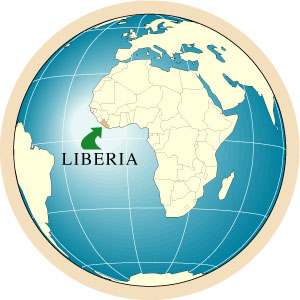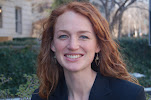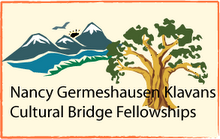
"Mol, why is there no micro lending agency in Liberia?"
The question was planted by my father in my e-mail inbox last summer when I was in Liberia. At that point, my dad -- Drew Kinder -- was already a budding microfinance enthusiast. This interest had started a few months earlier when he stumbled upon a Nicholas Kristof op-ed in the NY Times about kiva.org: an innovative website that links ordinary citizens (like my dad) directly with profiles of prospective borrowers in impoverished countries. As a successful entrepreneur himself, my dad instantly connected with the innovative nature of the start-up site and its core message of empowerment through entrepreneurship. Quickly hooked on kiva, my dad started a new weekly ritual. Every Sunday, he would browse the kiva website from his leather chair in suburban Buffalo, find a deserving entrepreneur in a far-off place like Tajikistan or Tanzania, and make a $25 loan.
My dad was not alone in his ritual. One Sunday morning late last summer, my dad went to the Kiva website to make his weekly loan and discovered that the site was empty. Kiva had received so much publicity from the likes of Oprah and Bill Clinton that they were flat out of borrowers. Yet this dearth of borrowers belied what my dad saw as a huge need in places like Liberia. All throughout the summer, my dad had followed closely the experiences of Team Liberia through our blogs. It dawned on him that he never once came across a Liberian entrepreneur on kiva's website, which puzzled him. Are there not Liberian entrepreneurs who could use the sort of loans my dad gave every week? And if so, where are the MFIs that would serve them? Thus my dad's email to me in Liberia, in which he wrote:
"This raises the question of why there is no micro lending agency in Liberia. Would it not be possible to kick start a micro-loan effort there? Kiva is actively looking for borrowers. This seems like low hanging fruit compared to all the intractable problems you uncovered over there. Just a thought. Perhaps you could discuss it with the team. If necessary, I would go there this winter to help get something started." --Dad--
When I raised this question with Team Liberia, we were stumped. With all of the global attention to microfinance as a tool for reducing poverty, particularly among poor women, Liberia seemed ripe for such an intervention. Everywhere you turn in Monrovia, you are certain to be greeted by one ubiquitous sight: women of all ages selling vegetables and other goods on street corners. In fact, in Monrovia a striking 40 percent of working women are employed as street vendors or petty trades, and another 29 percent are engaged as "market women." In total, a whopping 174,000 women work as "market women" across Liberia, and an even greater number eke out meager livings as petty traders. Many of these women are the primary bread winners of families averaging seven members. Yet less than 6,000 women in the entire country have any access to formal credit and the sort of small loans that my dad makes every week from his leather chair in Buffalo.
When I raised this question with Team Liberia, we were stumped. With all of the global attention to microfinance as a tool for reducing poverty, particularly among poor women, Liberia seemed ripe for such an intervention. Everywhere you turn in Monrovia, you are certain to be greeted by one ubiquitous sight: women of all ages selling vegetables and other goods on street corners. In fact, in Monrovia a striking 40 percent of working women are employed as street vendors or petty trades, and another 29 percent are engaged as "market women." In total, a whopping 174,000 women work as "market women" across Liberia, and an even greater number eke out meager livings as petty traders. Many of these women are the primary bread winners of families averaging seven members. Yet less than 6,000 women in the entire country have any access to formal credit and the sort of small loans that my dad makes every week from his leather chair in Buffalo.
My dad was clearly unsatisfied with our feeble response to his question. So he decided to take action. One day when browsing the kiva website, he came across a notice for a program called "kiva fellows." Kiva fellows volunteer to move to a developing country for several months, on their own dime, to support one of kiva's partner microfinance institutions. Unbeknown to the rest of us, my dad submitted an application, explaining that his motivation was to learn from the ground level how microfinance works so that he can ultimately help bring microfinance services to Liberia. By November, my dad was boarding a plane headed for Kampala, tasked to support a small MFI called "Share an Opportunity."
Kampala is a very, very long way from my dad's comfortable leather chair in suburban Buffalo. And it was with no small sense of pride that I heartily applauded my dad's courageous sojourn halfway across the globe, and his transformation from quite literally an armchair microfinance enthusiast to a full fledged practitioner. In fact, so proud of my dad was I that I simply could not resist joining him, albeit briefly, in Kampala. After relishing my dad's experiences from afar through his beautifully written blog, I flew to Kampala in January, en route to Liberia to work for several week for the Ministry of Finance during my winter break.
Kampala is a very, very long way from my dad's comfortable leather chair in suburban Buffalo. And it was with no small sense of pride that I heartily applauded my dad's courageous sojourn halfway across the globe, and his transformation from quite literally an armchair microfinance enthusiast to a full fledged practitioner. In fact, so proud of my dad was I that I simply could not resist joining him, albeit briefly, in Kampala. After relishing my dad's experiences from afar through his beautifully written blog, I flew to Kampala in January, en route to Liberia to work for several week for the Ministry of Finance during my winter break.

My visit with my dad in Kampala was among the most meaningful times I have ever shared with him. Our evenings were spent catching up on his porch over cold Ugandan beer and languishing over long dinners with his motley crew of new friends (including priests, nuns, young USAID staff, and Bangladeshi development workers). My dad's practical eye as a business man combined with his compassion and incisive insights kept me riveted and asking questions for hours. During the days, I enjoyed a crash course of sorts in microfinance. We visited with the staff at the headquarters of Share an Opportunity and the esteemed Bangladesh-based BRAC. To get a closer look at the operations of the MFIs, we spent a day observing the group meetings of female entrepreneurs in the slums of Kampala and also visited a rural development and savings scheme outside of Kampala. In between these adventures, I zipped around town after my dad in local matatus (i.e. 12 person vehicles) and "boda-bodas" (motorcycles), marveling at my father's fearlessness and ease in Kampala's unruly traffic.

 My dad with members of one of BRAC Uganda's microcredit groups in the Kalerwe branch
My dad with members of one of BRAC Uganda's microcredit groups in the Kalerwe branch My dad handing out his famous "Your future is bright!" pens
My dad handing out his famous "Your future is bright!" pensMore than anything else I witnessed during my microfinance crash course, BRAC Uganda stood out as a star. I was extremely impressed with the organizational effectiveness, vision and reach of their operations. BRAC's model entails lending to groups of 20-30 women in some of Uganda's most impoverished pockets. The woman meet regularly and make small, fixed payments to pay off their small loans. BRAC long ago perfected its group lending model in Bangladesh, where the organization began several decades ago and now provides credit to more than six million Bangladeshis. Only last year did BRAC arrive in Uganda -- heeding President Clinton's call at his annual summit for the organization to expand its operations to Africa -- and already BRAC Uganda is serving more poor clients than any other MFI in Uganda. My dad worked closely with BRAC during his stint as a kiva fellow, and shares my enthusiasm and respect for the organization.

The impact of BRAC Uganda's work came alive to me during one of the more touching moments of my visit. My dad and I had just spent the afternoon observing groups of women in their weekly meetings. After the meeting, we went to the home of one of the women to learn more about how she has put her small loan to use. It was this moment, as I observed my dad sitting in the home of a brave grandmother named Regina, in the midst of a Kampala slum, that microfinance became real to me. As my dad sat with Regina in her tiny, dark, makeshift home, he gradually drew out her story. Regina was the primary care giver of a brood of eleven grandchildren, all of whom had been orphaned by AIDS. Regina's story, captured beautifully by my dad in his blog entry, is among the most powerful anecdotes I have encountered about the potential of microfinance to change lives in small but meaningful ways. By taking out small loans through a BRAC group, Regina has been able to expand her business of selling roast chickens, and to use the proceeds to start a new business of selling fresh water. The result? Paying her orphaned grandchildren's school fees, paving the way for a brighter future out from circumstances that might seem anything but bright.
 My dad with Regina
My dad with ReginaMicrocredit and group lending are certainly not a panacea, nor a magic anecdote for poverty. But experiences like Regina remind me that microcredit does indeed perform small miracles, by harnessing the energy, passion, entrepreneurship and tirelessness of care takers like Regina. Helping them overcome some of the daunting obstacles they face in providing for their families: putting more bread on the table today. And, through their greater success in eking out a better living from the meager circumstances they have inherited, giving renewed hope to another generation: in Regina's case, a son with a law degree from Uganda's most prestigious university and education for eleven orphaned grandchildren."
As I flew to Monrovia from Kampala a few days later, I thought about just how many Reginas there are in Liberia. And yet how few BRACs are operating in Liberia to address the unmet credit needs of Liberia's Reginas. In fact, there are just two small MFIs serving all of Liberia, with a tiny client base. This deficit is even more striking given the context: a very poor country led by a president with an explicit political mandate to support her country's market women, deemed her "greatest constituency." (President Sirleaf's own grandmother was a market woman). What would it take, I thought, to replicate what I had seen in Kampala's Kalerwe slums to women across Liberia?
When I arrived in Monrovia, I was immediately catapulted from the grassroots perspective I had enjoyed in my microcredit crash course to a birds-eye, macro view of national policy. My job was to work on Liberia's national Poverty Reduction Strategy: Liberia's big picture policy objectives and strategies for the next three years, such as building roads and infrastructure, and creating an enabling environment for private sector development. At first blush, this sort of central planning seemed at once at odds with the grassroots perspective I had relished in Uganda, and also straight out of the Jeff Sachs corner of the over hyped Sachs-Easterly standoff. (An observation made only the more surreal by my chance run-in with Jeff Sachs himself at the breakfast buffet at the Mambo Point hotel in Monrovia). Seeing the immediate and measurable effect of microcredit loans on Ugandan women illustrated to me the imperative of hasty action: Liberians clearly can't simply wait for the government to change their lives. And yet, on the other hand, without improvements in the broader environment -- without the construction of roads to allow traders to access markets, for instance -- simply providing microfinance will only provide small improvements at the margin, without fundamentally changing economic opportunities. Liberia in a sense defied the polarized debate. The needs are so great, a little of everything is urgently needed: searching, planning, and most definitely microfinance.
(Side note: my classmate Emily Stanger and I explored this question further in our graduate thesis:"Fulfilling President Sirleaf's Mandate: Ensuring Women Their 'Proper Place' in Liberia's Development." We analyze the great need in Liberia for expanded access to financial services for small-scale women entrepreneurs, and provide recommendations for a better regulatory environment for microfinance and the provision of parallel business and skills training for women borrowers. Emily and I were invited to present these findings to President Sirleaf just before she delivered the commencement address at the Kennedy School.)
 Emily and I presenting our graduate thesis to President Sirleaf
Emily and I presenting our graduate thesis to President Sirleaf In March, my dad returned to Buffalo. Heralding his three month kiva fellowship as one of the most meaningful and enriching experiences of his entire life, my dad assumed his well deserved seat back in his leather arm chair. Part of his mission had been accomplished: he had indeed learned a great deal about how microfinance works, and had enlightened me in the process.
Just a month later, the second half of my dad's mission was completed. Mr. Ariful Islam, the dynamo country program coordinator of BRAC Uganda with whom my father had worked closely, wrote that BRAC had registered in Liberia. BRAC's team in Liberia was barreling forward to commencing operations in at least ten branches in Monrovia by the summer time. Something tells me that my dad I have another adventure in store...
In just two weeks, President Sirleaf will be the keynote speaker at my graduation from the Kennedy School. In the audience, sitting alongside me, will be my dad and my family. As President Sirleaf speaks, my Kennedy School experience -- and the overseas odysseys of my family -- will come full circle. Addressing the school in September of 2006 at the very start of my two year program, President Sirleaf invited my classmates and me to "come to Liberia." In so doing, she planted a seed that would ultimately change the lives of three members of the Kinder family. Her call was heeded not only by me, twice, but also by my sister Colleen (and writer extraordinaire who spent 3 weeks with me in Liberia and whose timeless essay on Liberia will soon be published), and ultimately my father, who felt so moved he literally moved. Halfway across the world. And touched many lives in the process, including my own. And, if BRAC works its magic in Liberia as I believe it will, perhaps several more Reginas.
 The Kinder family at President Sirleaf's Kennedy School commencement address
The Kinder family at President Sirleaf's Kennedy School commencement address****************
****************
***UPDATE: BRAC Liberia is now up and running. According to a March 2009 BRAC blog post, the Liberia office now has a team that will lead programming in three areas:
- an agricultural program that will help rural farmers grow better crops to feed their families and sustain their livelihoods;
- a microfinance program; and
- a health program that will train BRAC community health promoters, women who go door-to-door to visit 150 homes in their communities, providing life-saving health information, basic health services and access to a variety of health products.




